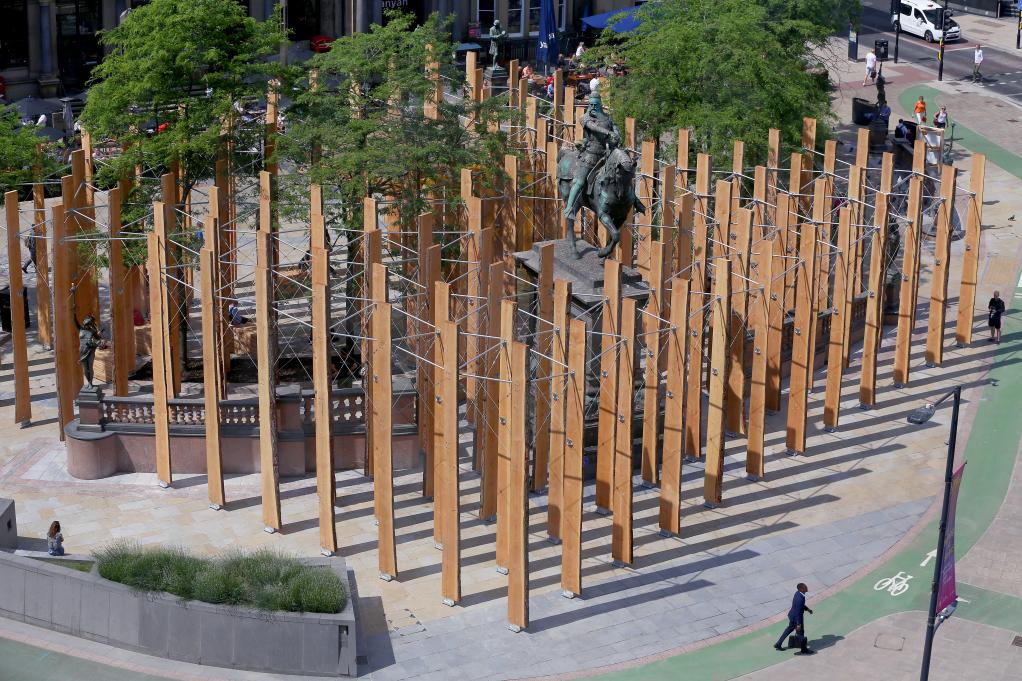MAKING A STAND
15th of June 2023
LEEDS – YORKSHIRE, UK: Today (Thursday 15th June) commuters and visitors arriving into Leeds city centre have been greeted by an extraordinary sight. A remarkable sculptural ‘forest’ has taken root in the main public square outside Leeds railway station.
Comprising 127 seven-metre-high timber fins, this quietly powerful temporary installation entitled ‘Making A Stand’, aims to ‘disrupt’ the popular pedestrian route by creating an awe-inspiring artwork using commercially grown timber ‘borrowed’ from the construction supply chain, which can be repurposed when the work is dismantled at the end of the year.
Amidst the ongoing discourse surrounding climate protests and their impact on everyday lives, ‘Making A Stand’ is a thought-provoking artistic intervention that invites people to pause, explore and contemplate major environmental issues in a visually striking and provocative manner.
The installation is co-created by acclaimed visual artist Michael Pinsky (whose work is known for challenging the status quo on climate change and urban design), and award-winning environmental architects Studio Bark. It is one of 12 signature projects commissioned as part of LEEDS 2023’s transformational Year of Culture, and is inspired by the city’s origins as a forested area called Leodis over a thousand years ago, which gave rise to the name ‘Leeds’.
The co-creators of ‘Making A Stand’ aim to draw attention to the urgent need for the built environment industry to replace carbon-intensive materials like concrete and steel with more sustainable alternatives, such as timber. The project aims to ignite a conversation surrounding material life cycles and to demonstrate that large-scale, temporary art can also be created in a sustainable way.
The timber fins, which have been ‘borrowed’ from the supply chain at the point between felling and stacking, are positioned vertically making them quite literally ‘stand up’ like a ‘stand’[1] of trees in nature. The fins work together with a webbed canopy of steel wire ropes and steel struts, acting in tension and compression to ensure minimal damage to the wood so that it can be repurposed at the end of the year, minimizing waste while maximising opportunities for carbon capture and storage.
The project uses timber felled from sustainable forests in the UK where wood is grown for use in construction. Sliced into ‘fins’ by Whitney Sawmills in Herefordshire, the final stages of fabrication took place at Stage One, a specialist fabricator based near York.


